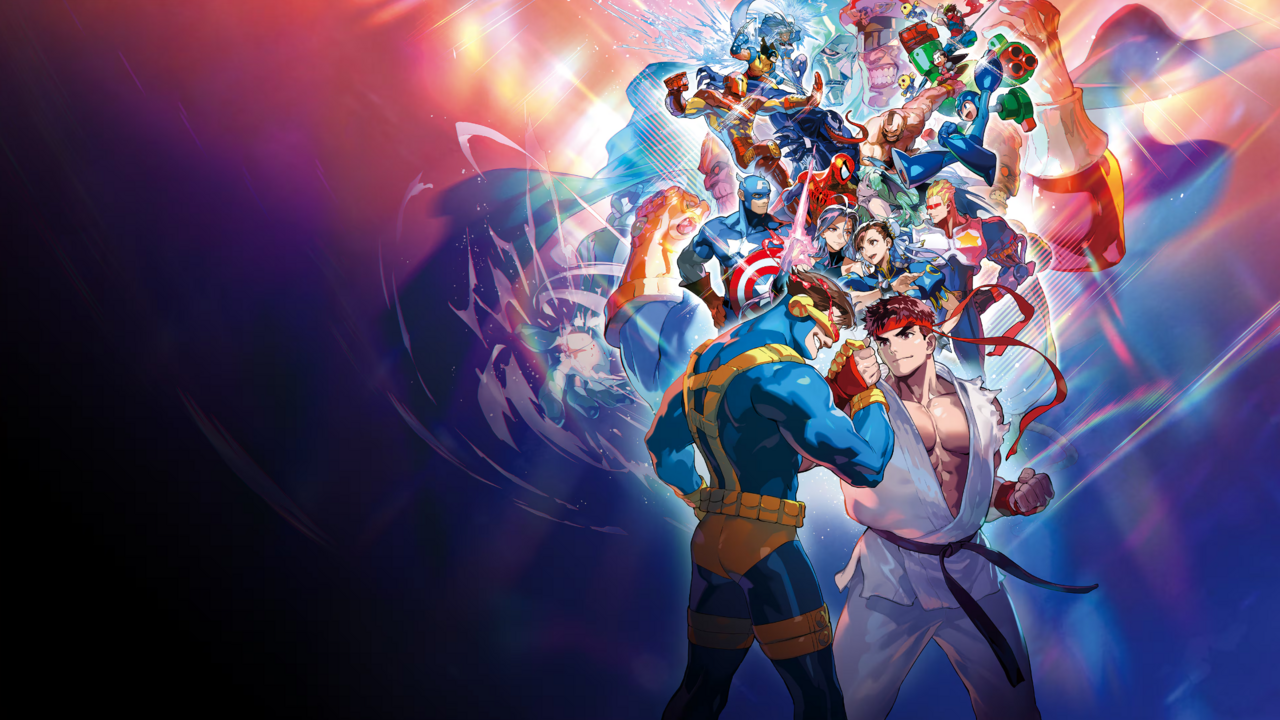In its heyday, the Marvel Vs. Capcom crossover fighting franchise was omnipresent. Every arcade–a concept that’s also a relic of a time long passed–had walls lined with MvC machines, and each one was surrounded by players dropping quarters into X-Men Vs. Street Fighter, Marvel Vs. Capcom 2, and others. It’s a bygone era, and for a while, fans believed that their beloved crossover franchise was as lost to time as the arcades of old.
Marvel Vs. Capcom Fighting Collection, however, brings together all six of those era-defining fighting games–along with the historic brawler that started the core partnership between Marvel and Capcom–in a new era. Thankfully, this package presents each game in a way that celebrates that storied past while also injecting new life into them with modern features, creating a collection that’s up to the task of reintroducing these classics to a new age of players.
The meat of the collection is in the fighting games. Each of the six fighting games in this collection are the arcade version–no console ports to be found. This is of course the right call, as each title represents the purest form, running mostly as it was intended back in the 1990s–save for a few frame-rate issues that pop up from time to time. However, it also exposes which of these games are showing their age, and which can still stand with the modern fighters of today.
Marvel Vs. Capcom 2–the marquee title of the collection–is just as good now as it was when it first launched 24 years ago thanks to its fast and frenetic three-on-three gameplay and massive 56-character roster. Mixing and matching with teams, trying to find big combos, and watching all three unleash a super move at the same time is still riveting and engaging. X-Men: Children Of The Atom, on the other hand, has a slower pace, only offers 10 characters, and follows a more traditional one-on-one, first-to-two-rounds format. Comparing two games that were released seven years apart could be considered unfair, as COTA is by no means a bad fighting game. However, it is the most “basic” fighter of the bunch, and the disparity between it and other games in the package makes COTA less enticing than the rest.
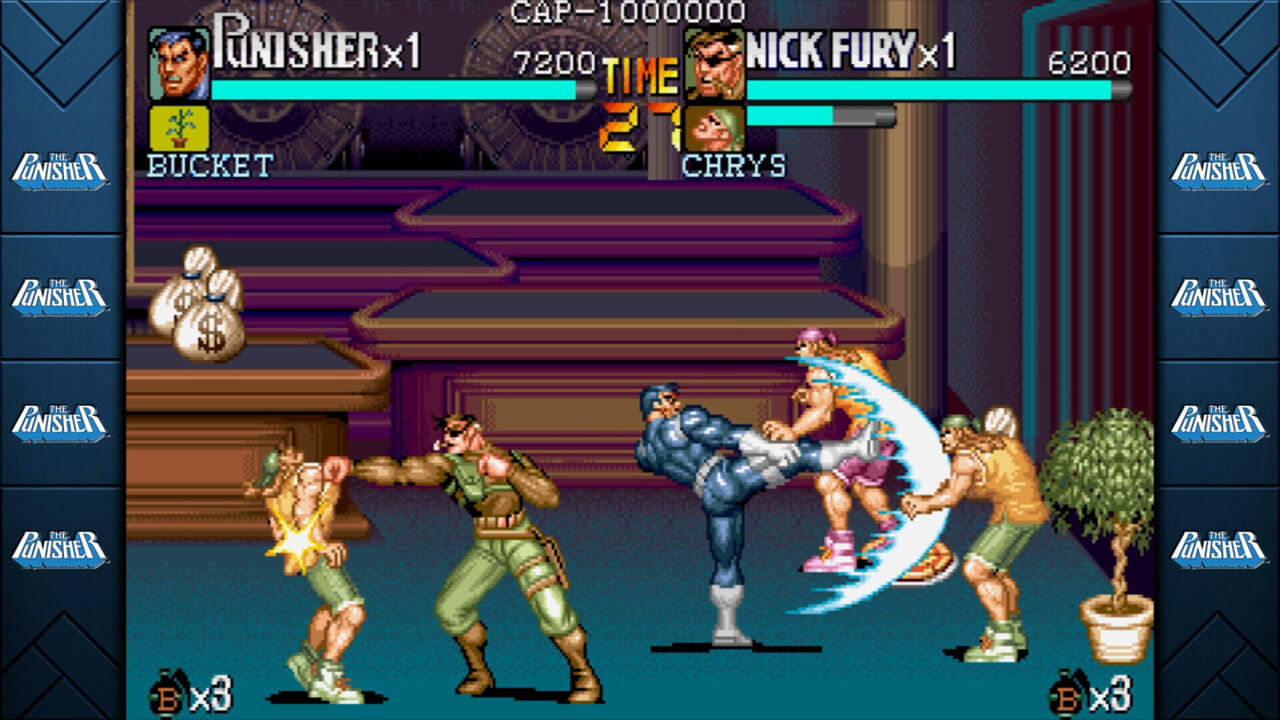
The rest of the games included here don’t have enough to knock MvC2 off of the marquee, but they offer plenty of fun in their own right. Marvel Super Heroes’s Infinity Stone mechanic offers an interesting wrinkle to the one-on-one format by powering up attacks, slowly healing damage, or adding projectiles to every basic punch and kick. X-Men Vs. Street Fighter serves as the foundation for Capcom’s approach to tag-based fighters, even if the roster is smaller than the others in the collection.
Marvel Super Heroes Vs. Street Fighter and the original Marvel Vs. Capcom, meanwhile, each offer something even MvC2 can’t deliver on: secret fighters. Both games have extra selections hidden on their character select screens–as does X-Men Vs. Street Fighter, but it’s Akuma, who appears in other games–and both offer fighters that don’t appear elsewhere.
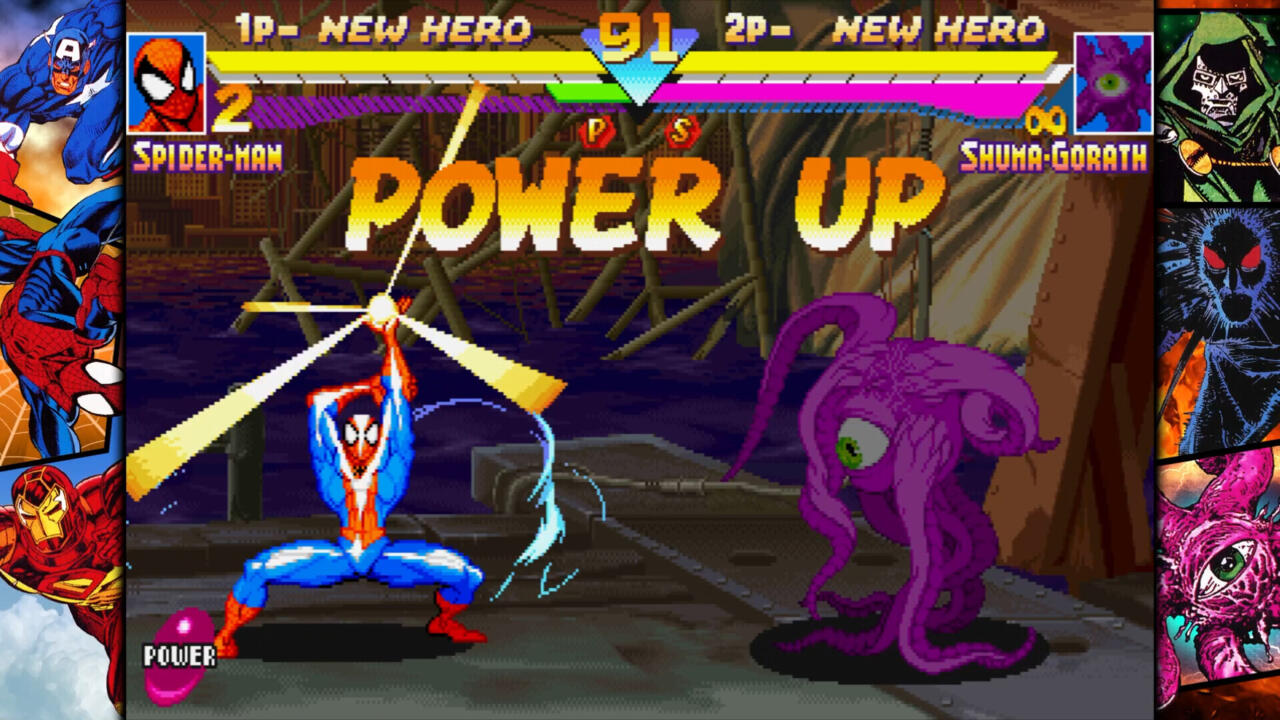
MSHvSF adds Shadow, U.S. Agent, and Mephisto–alternate takes on Charlie Nash, Captain America, and Blackheart respectively–among others, while MvC introduces Roll to the series, while also offering superpowered takes on Venom, War Machine, Hulk, and more. These characters are admittedly game-breaking, and they don’t supplant the MvC2 experience, but they give both of these games something worthy of booting them up once in a while.
One noticeable outlier is The Punisher, the aforementioned side-scrolling brawler from 1993. More Final Fight than Street Fighter, this is a fun albeit short beat-‘em-up that serves as the first game ever made in the Marvel/Capcom partnership. It’s got some weirdly over-the-top violence mixed in–the fate of the first boss is specifically jarring–but the brawling is fun enough, either alone or with a friend via co-op. Other than being a nice piece of history, however, it doesn’t add much to the collection.
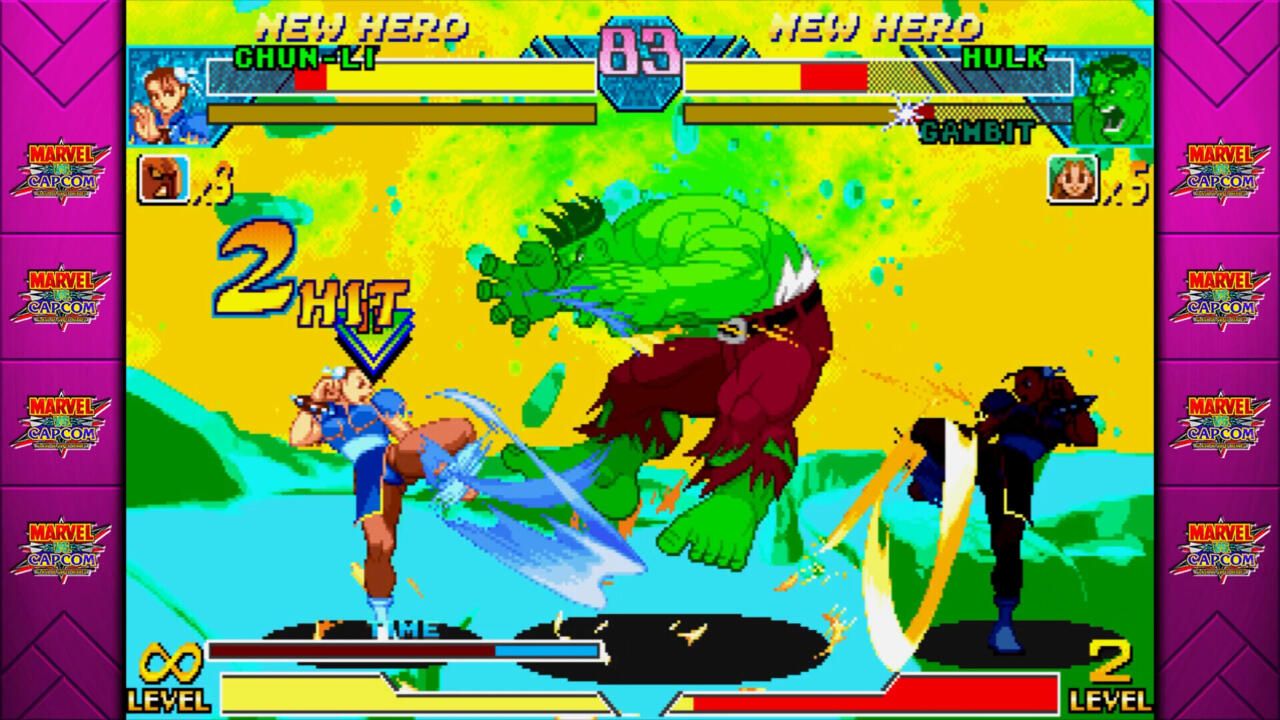
The modern perks each of these games receive are mostly blessings, but a few small annoyances have surfaced along the way. The quick-save feature from other Capcom collections returns, allowing you to retain your progress in an instant, but the problem here is huge: There’s only one quick-save slot for all seven games in the collection.
Any deep run in a single game is jeopardized if you decide to play a different game the next time we boot the collection up, instead of each game having its own individual quick-save slot, which makes a helpful modern tool turn into a major annoyance when having to choose between games when quick-saving. A showdown with The Punisher’s final boss should not be forced to be erased when a MvC run progresses all the way to Onslaught because of a baffling limitation like this.
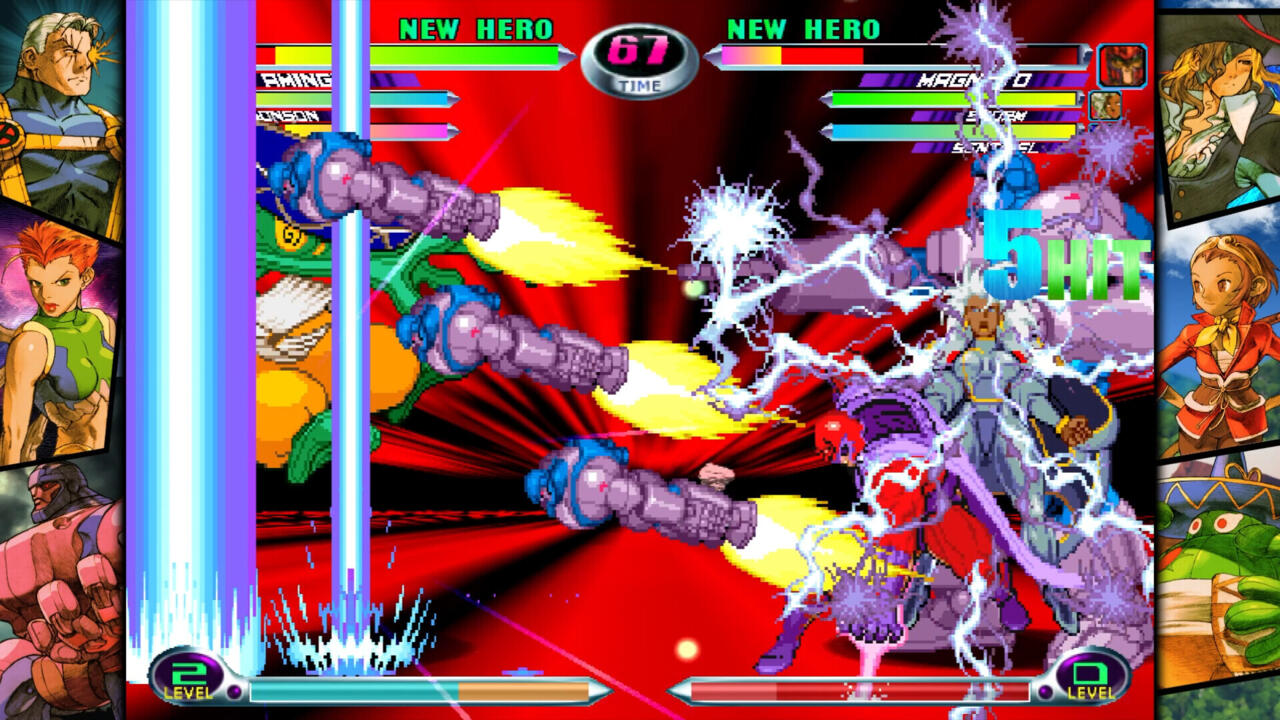
The best modern addition, without question, is rollback netcode in all seven games. The advent of rollback has supercharged the entire fighting-game genre, and this MvC Collection benefits from the improved online capabilities. The majority of matches played online were smooth, with little to no noticeable hiccups. Granted, this was during a review period without a full consumer fanbase trying to log in, so a grain of salt should be taken. Nonetheless, online matches felt as if my opponent were sitting next to me.
The rest of the collection’s extra features are a trip down memory lane via the Museum, which offer both a gallery of concept art and design documents for each game and a jukebox for listening to each game’s full soundtrack. There are some interesting nuggets of information in there for diehard MvC fans–like how the Japanese marquee card for X-Men: Children Of The Atom featured Cyclops and other heroes, while the US version has them all turned into silhouettes. Nothing is added to the core gameplay with these features, obviously, but the history lesson is appreciated all the same.
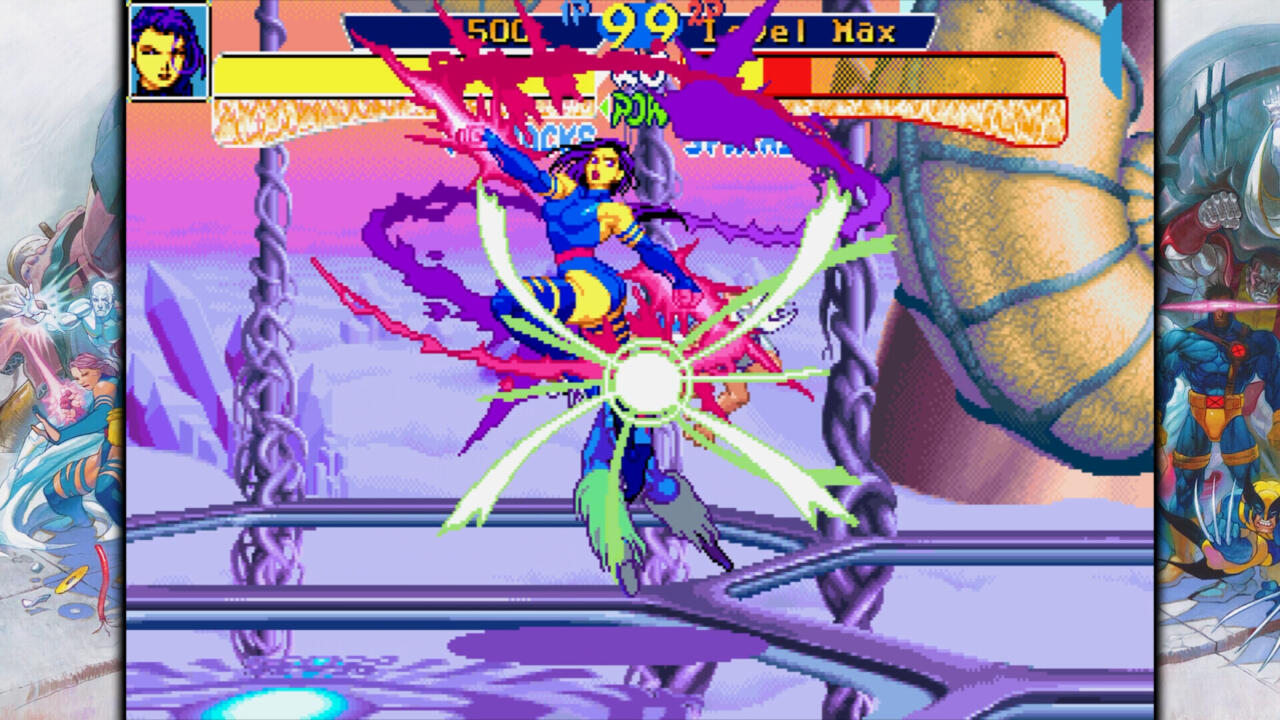
Before this collection, it had been nearly 12 years to the day since any of these games had seen an official release: the Marvel Vs. Capcom Origins bundle on September 25, 2012. Days, months, and years passed–along with a new release in the franchise that drew an infinite amount of ire, pardon the pun–with fans not knowing when these games would be freed from their seemingly endless stasis. Now, Marvel Vs. Capcom Fighting Collection has opened the floodgates with aplomb, grouping them all into a package worthy of the modern era. There are some issues, and some of these games don’t hold up quite as well as others, but the fact that they’re all here is a terrific act of preservation worthy of praise.
Whether you liked these games originally or are just playing them now, Marvel Vs. Capcom Fighting Collection is a great place to experience them. Put another way, it’s going to take you for a ride.
